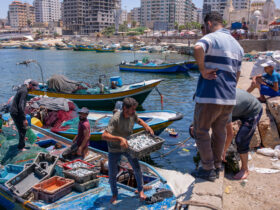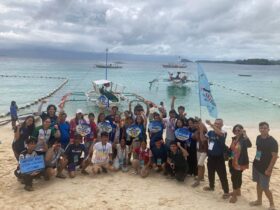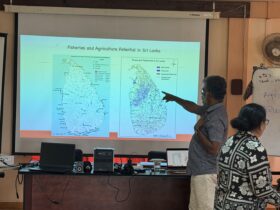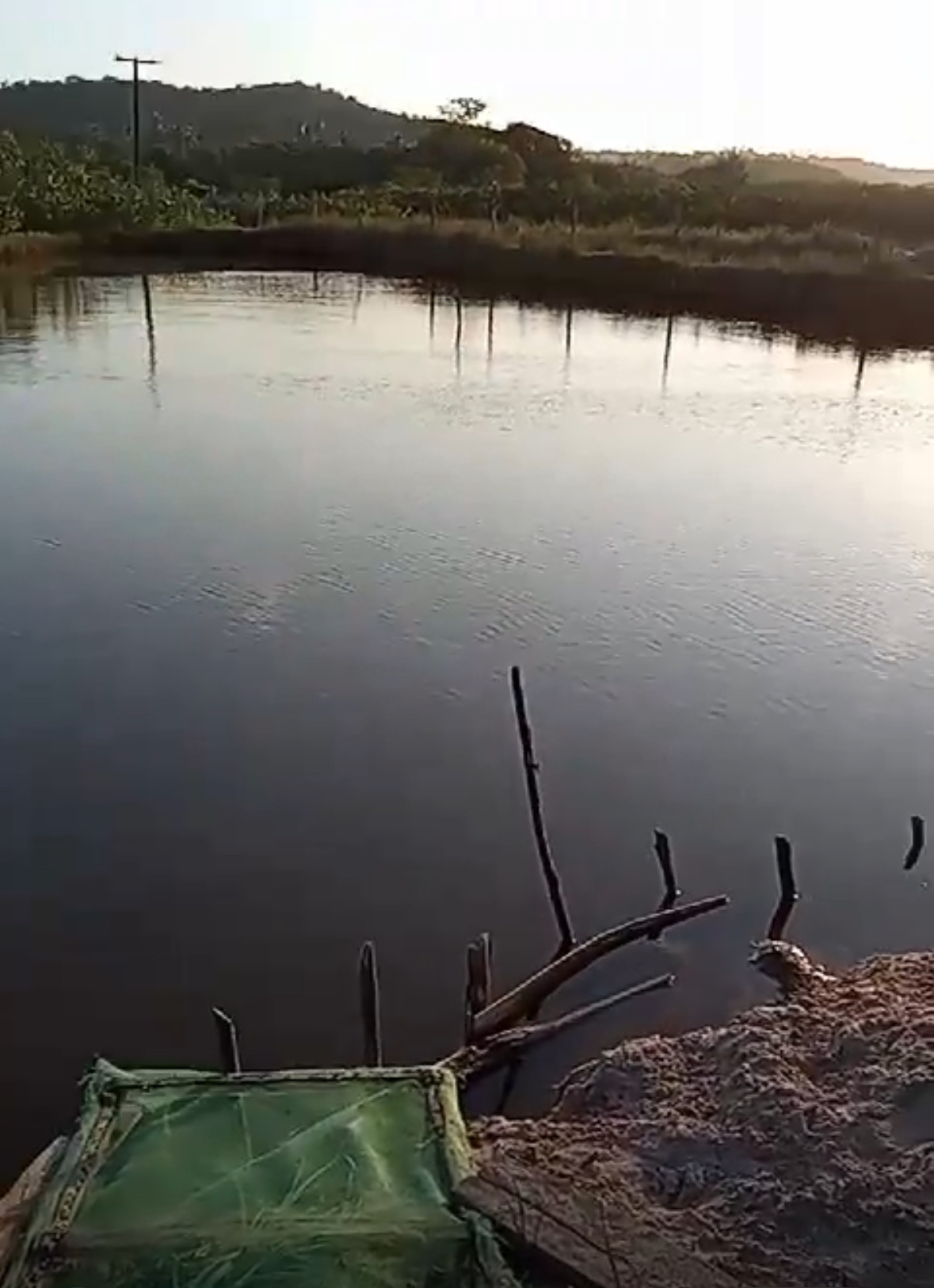On the coast of Brazil, one community demonstrates social justice in aquaculture
Aquaculture projects have impacted fishing communities around the world, often negatively. But the push towards aquaculture seems relentless. Development Banks, governments on every level, and many NGOs are promoting aquaculture around the world. In an effort to avoid top-down introduced words that shape the discourse on aquaculture, the question might be phrased: Can aquaculture be practiced in a way that does not trouble the collective soul of a community and the animate and inanimate world it lives in symbiosis with?
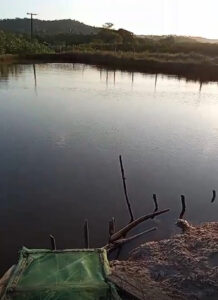 On the sidelines of the WFFP General Assembly in Brazil in 2024, Denison da Anunciação Santos, state coordinator for the MPP, describes an example of an aquaculture project heading in the right direction in many ways. “I flew here from Santa Luzia do Itanhy in the state of Sergipe,” says Denison, speaking in Portugese through an interpreter. Denison lives in Povoado Rua da Palha, a Quilombola community, which is a community formed by former slave of African heritage.
On the sidelines of the WFFP General Assembly in Brazil in 2024, Denison da Anunciação Santos, state coordinator for the MPP, describes an example of an aquaculture project heading in the right direction in many ways. “I flew here from Santa Luzia do Itanhy in the state of Sergipe,” says Denison, speaking in Portugese through an interpreter. Denison lives in Povoado Rua da Palha, a Quilombola community, which is a community formed by former slave of African heritage.
According to Denison, in 1993, large shrimp farming companies tried to take the community’s land in order to build industrial shrimp farms. “About 2000 of our people armed only with machetes and tools blocked the road, and would not let the shrimp farm owner pass,” says Denison. “He decided to fight us.”
But that does not mean the people of Povoado Rua da Palha were against shrimp farming. “Working at night to escape the notice of the authorities, they started to dig shrimp ponds,” says Denison. “We did it that way because we did not have enough money to conform with all the requirements. Eventually, the big shrimp farm owners reported us. But we were able to work with the authorities and they let us dig the ponds.” Since then, the community has dug 25 shrimp ponds totaling 200,000 square meters. and brought them into compliance with government regulations.
“We grow a species of shrimp called seven-beard shrimp at low stocking density,” says Denison. “We produce about 1,500 kilos of 15 gram shrimp in 3 months. We know we could grow more shrimp, but we do not want to use chemicals.”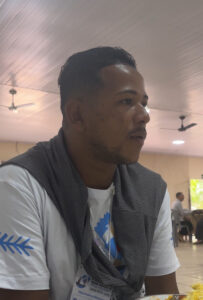
Denison notes that the community owns the shrimp ponds, and has limited development to 25 ponds. “All the profits from the ponds are shared among the workers,” says Denison. “About a 1,000 people in the community own and work the ponds, and every family is benefiting,” says Denison.
While the community is still tied to industrial fisheries due to its reliance on processed pelleted feed. “We talk about that, we know it’s a problem,” Denison says. “But we have not found an alternative.” In addition, the effluent from the ponds is drained into wetlands and filtered by the plants there. According to Denison, because of low stocking density and a limited number of ponds, the community believes they are operating within the carrying capacity of the local ecosystem.
The shrimp farms of Povoado Rua da Palha align with many of the values embraced by small scale fishing communities and organizations, particularly in terms of social and ecological justice.
Article credit-Paul Molyneaux
Shrimp Delight Photo Captions and Credits
File name: Denison
Cutline: Denison da Anunciação Santos, of Povoado Rua da Palha, a Quilombola community in
Santa Luzia do Itanhy in the state of Sergipe, describes the shrimp ponds his community has
built and maintained since the 1990s, sharing the work and profits.
Credit: P. Molyneaux
File name: Shrimp pond
Cutline: One of twenty-five shrimp ponds built in a Quilombola community. While the pond
operations hit the right notes in terms of social and environmental justice values, they are remain
challenged by a reliance on industrial feed.
Credit: Denison da Anunciação Santos


